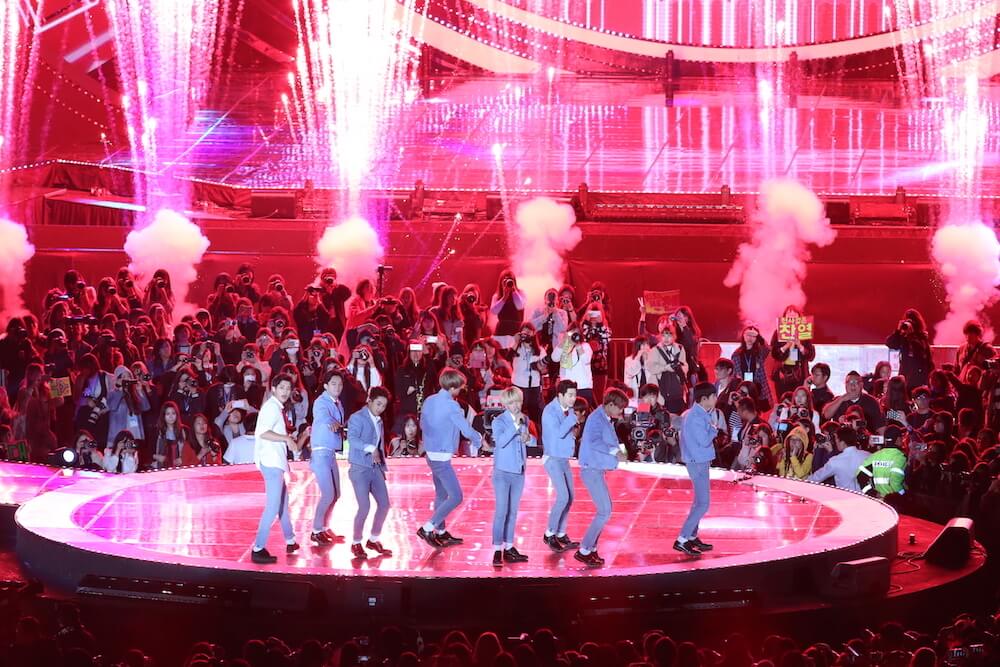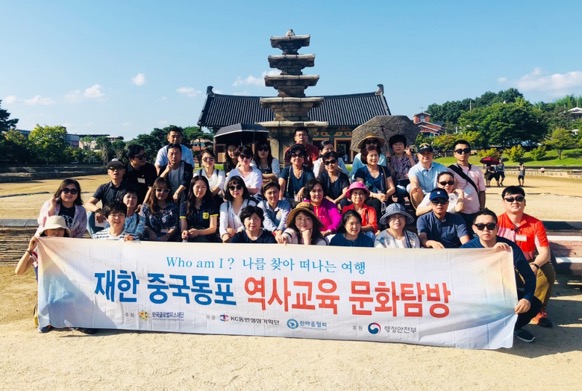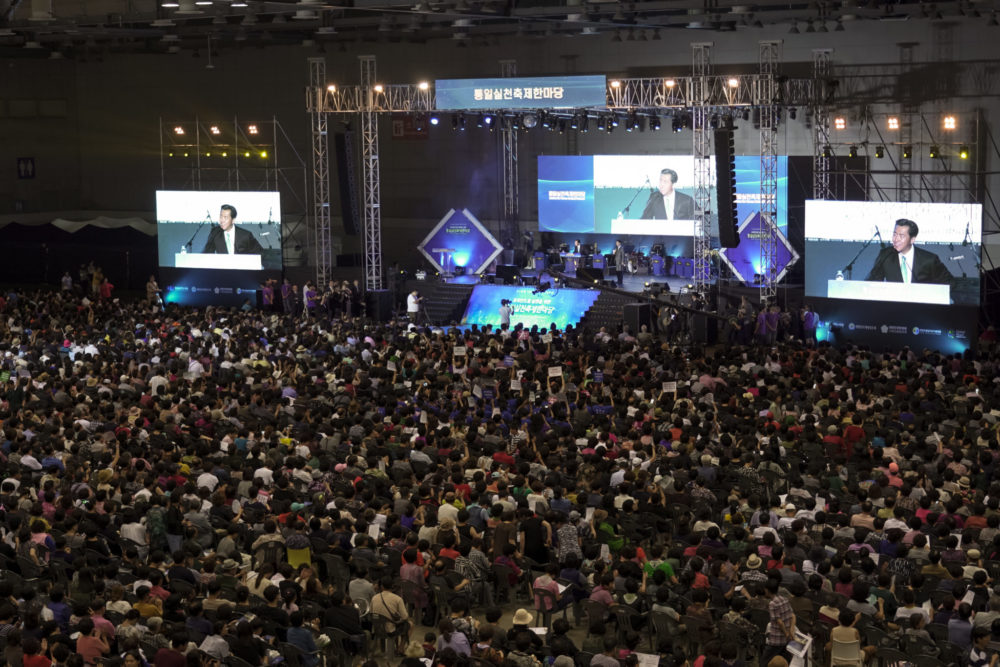“You don’t have to see the whole staircase, just take the first step.”
– Martin Luther King, Jr.
Action for Korea United: 2012-2021

K-pop stars at the 2015 One K Concert in Seoul
The impact of our work through Action for Korea United (AKU) and the One Korea Global Campaign has begun to gain traction, not only on the peninsula but across the globe. What started off as small Unification concerts have since become a catalyst for a new genre within Korean pop music. The movement has engaged top K-pop stars, composers, producers in Korea and abroad to reach out to millions of enthusiastic K-pop fans through our One K Global Concerts held in the U.S., Korea and the Philippines. These have also been broadcast by major media companies such as KBS and SBS.
Moreover, the international expert forums, summits, conferences, youth exchanges, service programs and social media campaigns have turned the tide on what used to be viewed as an “impossibility”. Today, experts and lay people alike no longer talk about “if” or “how”; rather, all these efforts have instead begun to generate energy, excitement and significant partnerships in pursuit of a peaceful Korean reunification.
The many forums and conferences, particularly the economic forums, have inspired other think tanks and institutions to take up the issue from a variety of angles and perspectives. AKU has also ventured into cultural exchanges with Koreans throughout the world through the One K Korean Arts Festival, with a network of over 140,000 member artists.

A cultural tour of Korean-Chinese visited Jeongnim Temple in Buyeo, Chungcheongnam-do, South Korea
This work has inspired the production of a Korean Dream documentary film as well as public art murals to raise awareness about and inspire conversations around the Korean Dream. A one million member-strong association of retired police officers have taken the Dream with them on Korean Dream tours, investigating the Korean legacy as it has traveled to different parts of the world. Youth Assemblies and service projects have inspired Korean youth to take up the call to “bring benefit to all humanity” by serving their brothers and sisters of different nations, cultures, religions, etc.
All of these cultural programs and events are creating a new kind of shared consciousness in the Korean people and changing the cultural landscape, instilling a new sense of destiny, adventure and purpose.

Korean Liberation Day in 2019 at the Kintex Convention Center
In 2019, this energy and spirit was on full display to commemorate Korean Liberation Day at the KINTEX Convention Center in Seoul with over 16,000 AKU activist partners. It was there that participants took up the spirit of the Korean Independence Movement of 1919, to move forward together to take up the call to finish the work of the ancestors to create a “free, independent, united” One Korea.
Then 2020 came along and the global Coronavirus pandemic upended the entire global order. Yet, in many ways, the lockdowns and shutdowns transformed and advanced Korean reunification work, particularly in terms of global partnerships. Previously, much of the work happened offline and in-person. Despite the many advantages of these kinds of forums and meetings, they were always limited by time and space. Simply put, it was difficult to coordinate and bring together both the foremost experts and simultaneously engage the wider global audience. But the pandemic pushed everyone into the 21st century, where all became required to utilize the many advanced communications technologies to their fullest extent.
Thanks to this and other developments, the Global Peace Foundation (GPF), a leading member of the AKU coalition was able to begin a series of online forums in 2020.
On February 24th of 2021, GPF convened the International Forum on One Korea as an online Congressional Roundtable and Forum. This brought together the world’s top experts on Korea to discuss options for a policy framework in terms of Korean reunification for the new Biden Administration. The bipartisan agreement on a basic framework based on fundamental human rights and freedom was quite notable considering the divisive nature of politics today.
During the forum, the Hon. Tae-Yong Cho, a National Assemblyman of the Republic of Korea and a member of the People Power Party noted the many significant, bipartisan agreements that have come about in terms of Korean reunification in both the U.S. as well as South Korea:
Last November, on the occasion of the 70th anniversary of the Korean War, the US Congress adopted a bipartisan resolution affirming the importance of the US-ROK alliance that shares such values as liberal democracy, a market economy, human rights, and the rule of law.
The ROK National Assembly also adopted a bipartisan resolution, […] which emphasizes common values including resolution of the North Korean nuclear issue, maintenance of a strong combined defense posture, a free democratic market economy, and human rights and the rule of law.
With increased clarity on “what kind of Korean unification” and participation from a higher level, multi-national actors as well as experts, leaders, influencers, and everyday citizens working in their different spheres of influence, the Korean Dream is beginning to take shape in the minds and the hearts of the people.

